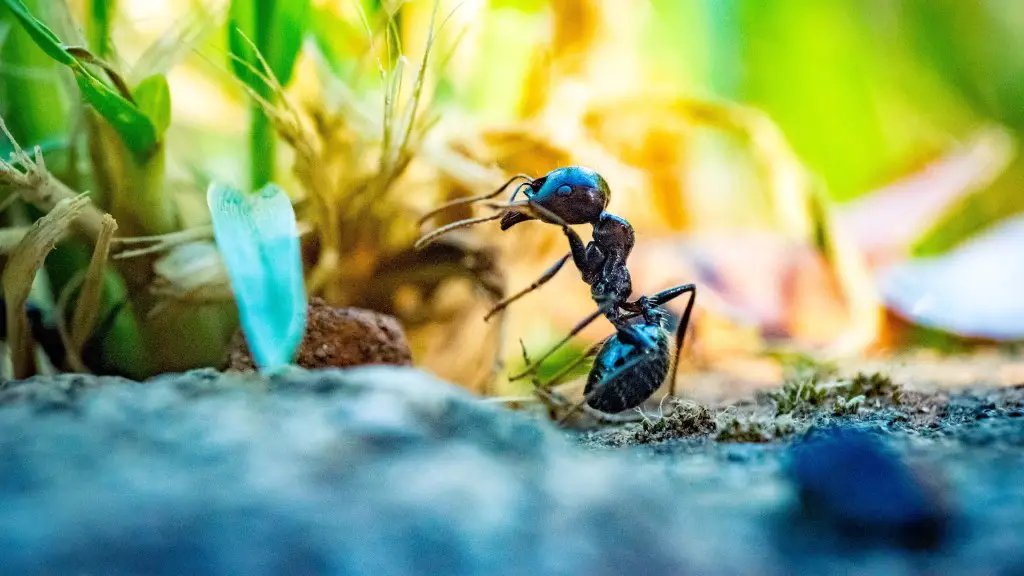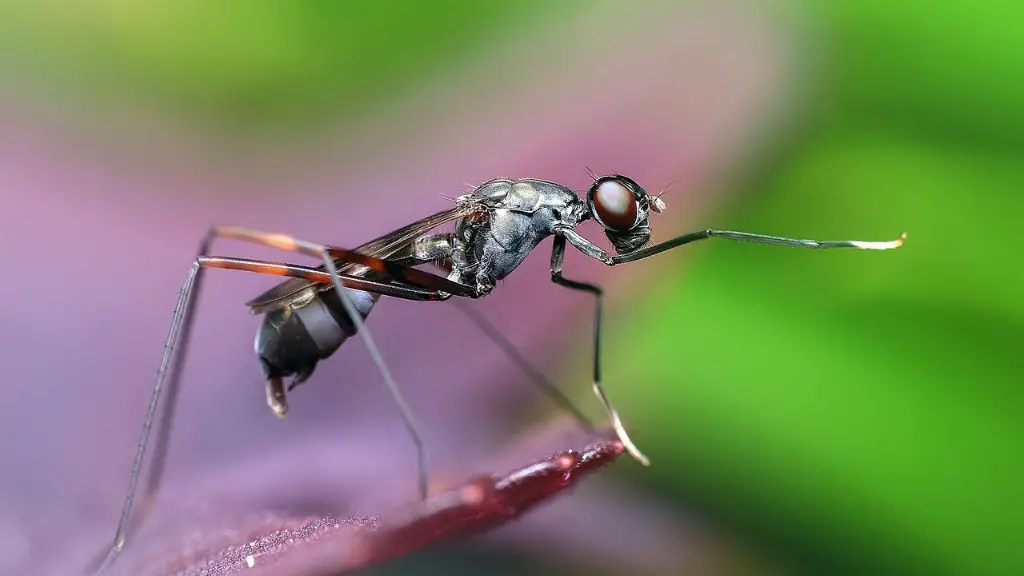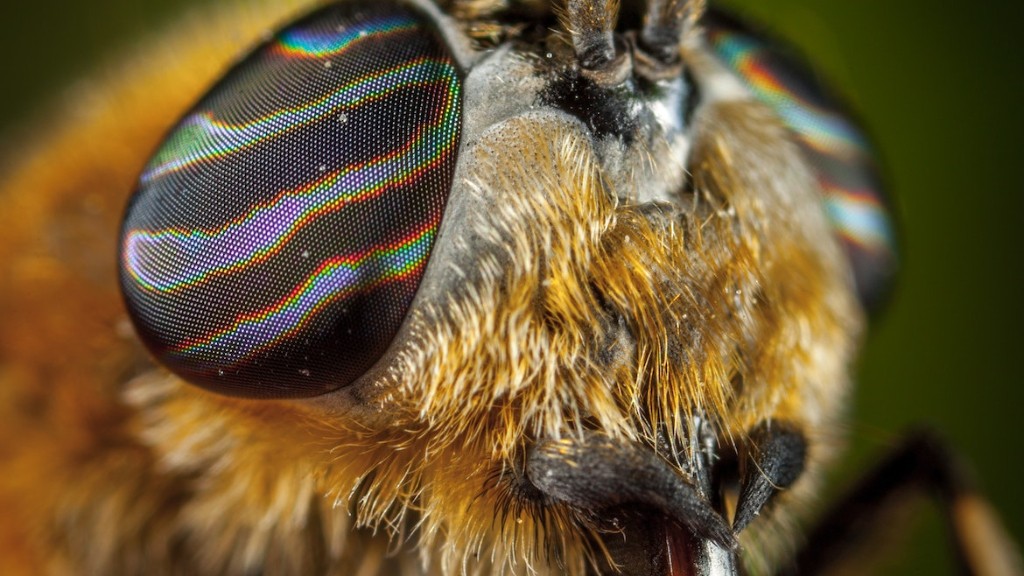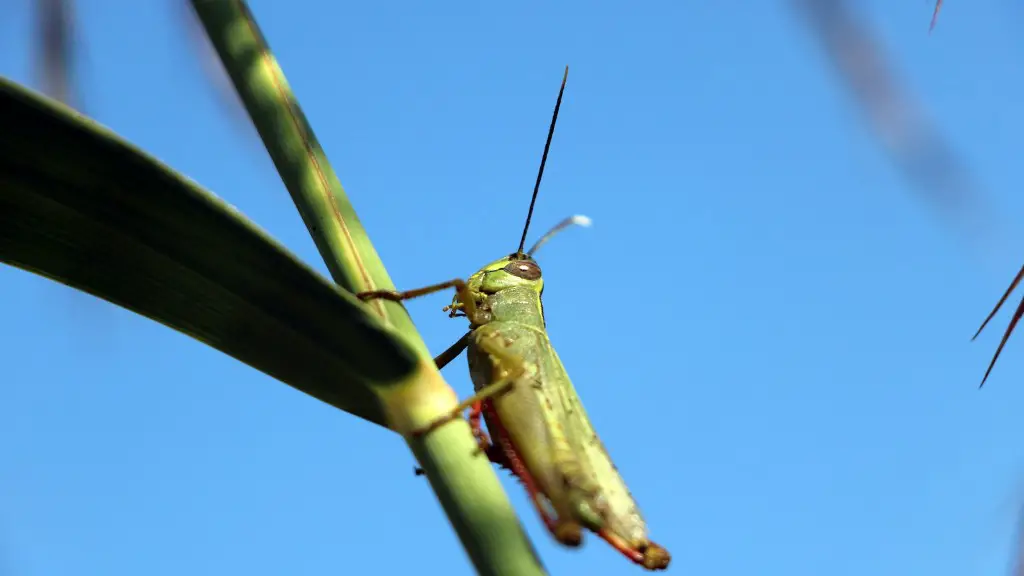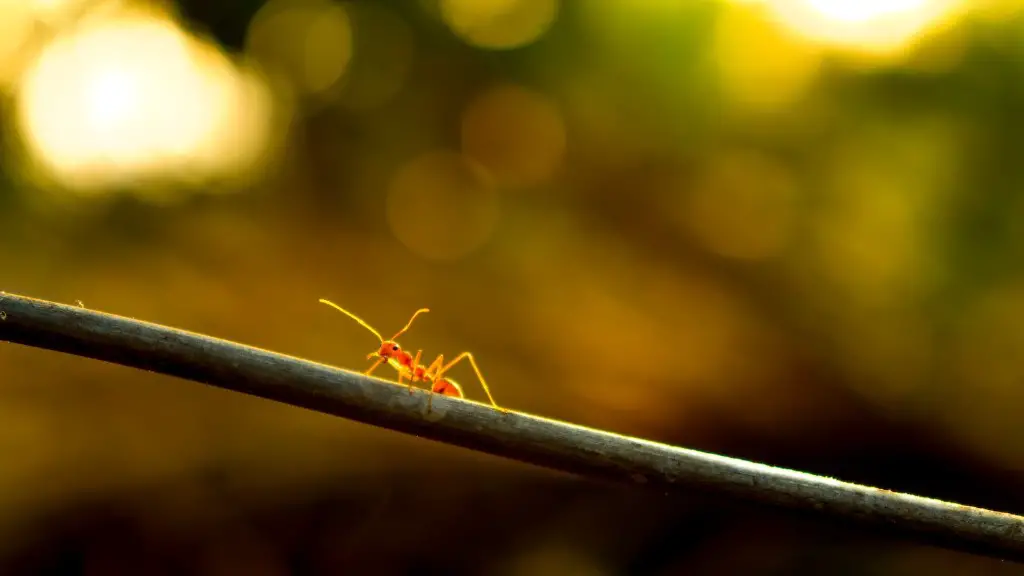Sugar ants are a common problem that many people face in the household and in their gardens. Not only can they be an annoying invasion, but they can also bring on other, more serious pests such as cockroaches and termites. So, if you’re fed up of dealing with what seems like an ever-increasing ant population, then it’s time to take action. Here’s our guide to getting rid of sugar ants outside.
One of the best ways to get rid of sugar ants outside is to place ant baits around the area. Ant baits contain toxins which are attractive to sugar ants, and when consumed, will kill them. Ant baits can be purchased from your local hardware store, and should usually be placed near entrances or areas where you notice sugar ant activity. When placing your ant baits, make sure to keep them away from children and pets.
Another effective way to kill sugar ants outside is to make a makeshift trap using borax and sugar. The sugar in this mixture attracts the ants and the borax kills them. To make this trap, simply mix together some sugar and one tablespoon of borax in a shallow plate. Once the ants have eaten the mixture, they’ll take it back to their nest and kill off the rest of the colony as a result.
You can also customize your ant bait traps to be more effective against sugar ants. For example, you can add peppermint oil to the mix, as sugar ants don’t like the scent. You can also add food coloring to the bait to make it more attractive to the ants. Be sure to mix the food coloring in with a tablespoon of sugar so that the ants will be more likely to take it back to their nest.
Natural methods can also be used to get rid of sugar ants outside. For example, you can use a mixture of lemon juice and water to repel them. Simply dilute the lemon juice in a spray bottle and spray it on areas that show signs of ant activity. You can also use cucumber peels to deter the ants from your garden. Place fresh cucumber peels in areas where you’ve seen the ants and they will avoid it.
If all else fails, you can always call in a professional to get rid of your sugar ant problem. Pest control experts are experienced in dealing with these pests, and will be able to identify the source of the infestation and provide a tailored solution. This may involve using stronger chemical products or traps, so always consult with a professional if you’re not sure how to proceed.
Preventing Ants from Returning
Once you’ve got rid of your sugar ants, it’s important to take preventative measures to ensure they don’t return. Make sure to seal up any entry points in windows and doors, and use caulking to fill in any cracks and crevices. You can also make sure to maintain a clean and tidy garden. Litter and gust will attract sugar ants and other pests, so make sure to keep gardens and lawns free of debris.
It’s also important to maintain a balanced ecosystem in the garden. This means not using too many pesticides or herbicides, as these can disrupt the balance and allow sugar ants to move in. Instead, you can use natural predators of sugar ants, like ant-eating spiders and centipedes. Encouraging these predators into your garden will help to keep the sugar ant population in check.
Finally, it’s important to note that sugar ants are attracted to food sources. Make sure to store food in airtight containers and not to leave any food scraps lying around. If you notice any ant activity near food sources, take the necessary measures to clean up the area and store the food away.
Removing Food Sources
Removing food sources is one of the most important steps you can take in dealing with a sugar ant infestation. Sugar ants are attracted to foods that are high in carbohydrates, such as cereals and sweet treats. Make sure to seal up all food items in airtight containers and keep them away from potential ant entry points. If you’re having difficulty keeping food away from ants, you could also invest in a pest-proof container to ensure that all food items remain safe.
You should also be aware of areas in the garden where sugar ants may congregate. These areas may include flowerbeds, piles of leaves and compost bins. Make sure to clean up these areas regularly and to be aware of any ant activity in the area. By keeping your garden clean and free of food sources, you can significantly reduce the risk of a sugar ant infestation.
Dealing with an Infestation
If the sugar ant population has already gotten out of control, then it’s important to take action as soon as possible. As mentioned earlier, ant baits are an effective way of killing the ants, though you may want to consider stronger options if the infestation is particularly bad. These stronger options could include baits that contain stronger toxins, or even using insecticidal sprays or gels. You should consult with an expert before using these stronger options, however, as they can be harmful to plants and animals if not used correctly.
It’s also important to identify the source of the infestation and take action to deal with it. This could involve finding ant entry points and sealing them up, or dealing with nearby nests. If you’re unable to locate the source of the infestation, then it may be best to call in an exterminator. Exterminators will be able to locate the source and provide a tailored solution to get rid of the ants, thus saving you time and money in the process.
Keeping Ants Away
Once you’ve dealt with the initial infestation, it’s important to take measures to ensure that the ants don’t return. This could involve using bait traps filled with borax and sugar, or using natural deterrents such as peppermint oil or cucumber peels. You should also make sure to maintain a clean and tidy garden, as clutter and debris can attract sugar ants as well as other pests.
Another important step is to identify and seal up any potential ant entry points. Sugar ants can squeeze through very small cracks and crevices, so make sure to seal up any that you may find in windows and doors. You should also caulk any cracks in walls or foundations, as these can also be potential entry points.
Finally, it’s important to keep a balanced ecosystem in the garden. Pesticides and herbicides should be used sparingly, and natural predators, such as birds and spiders, should be encouraged. This will help to keep the sugar ants away, and ensure that your garden remains healthy and vibrant.
